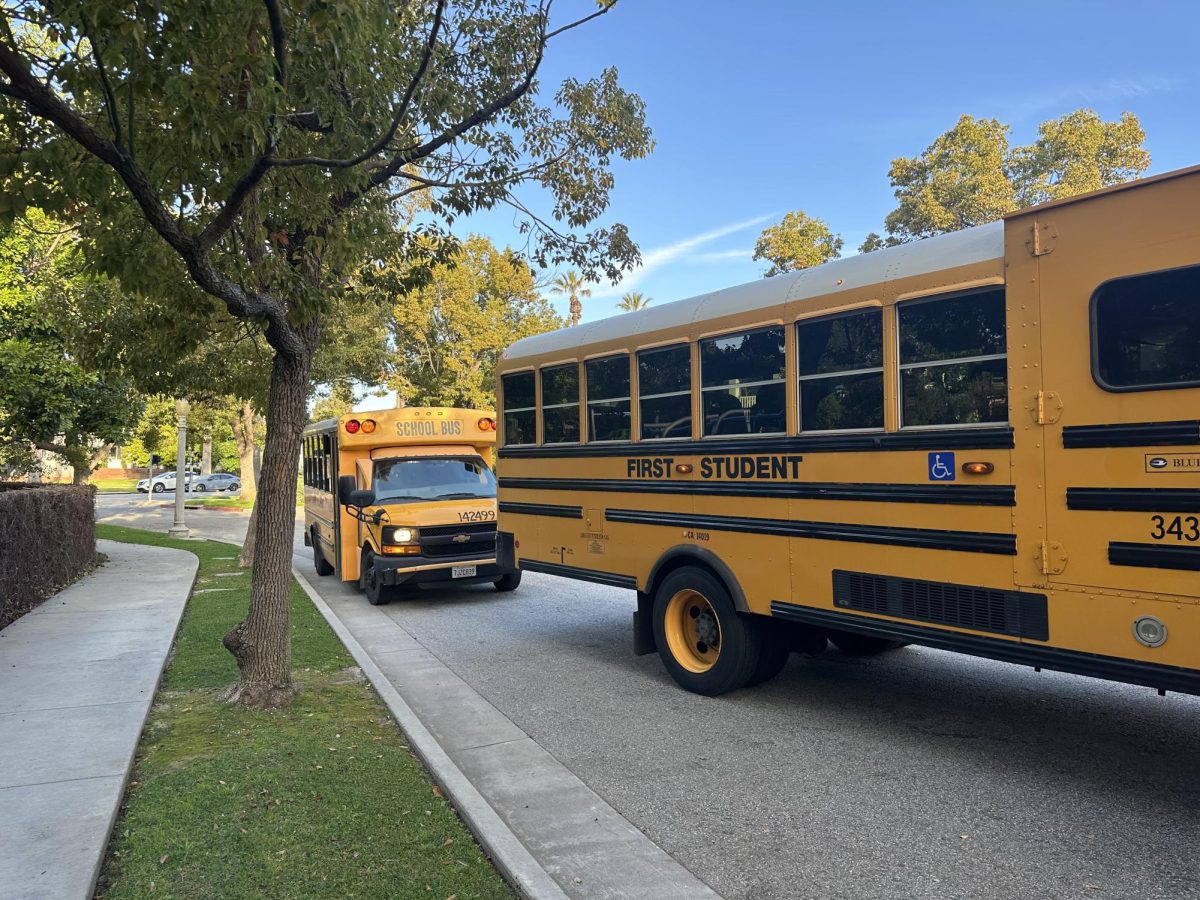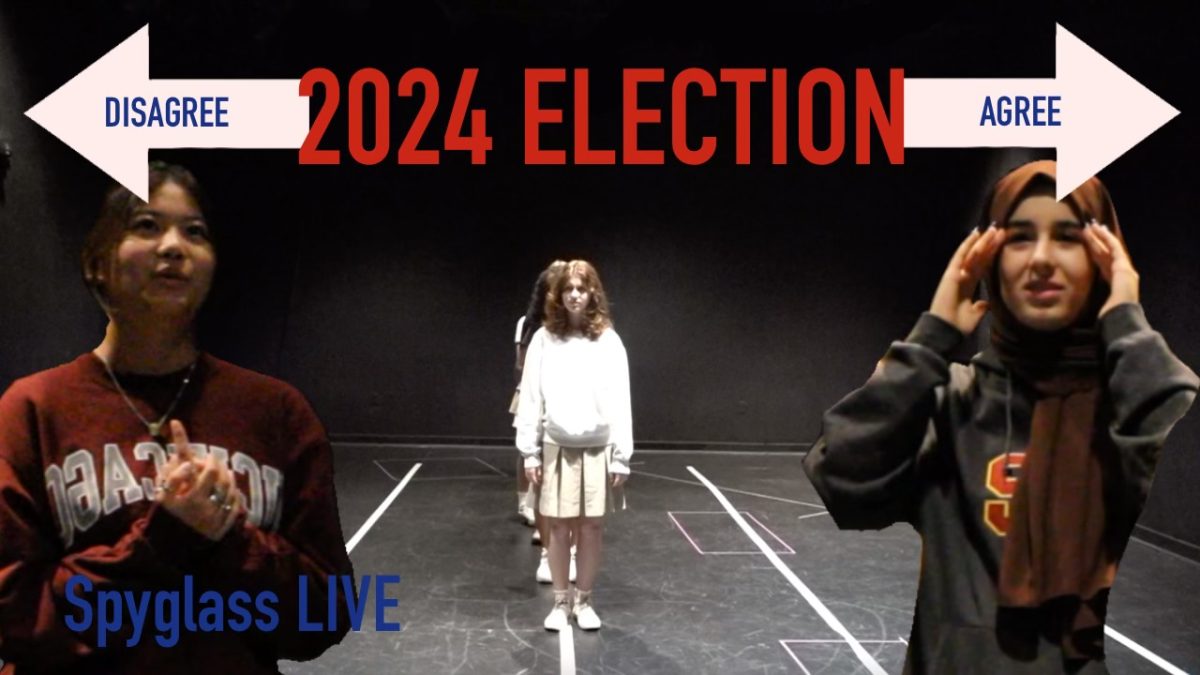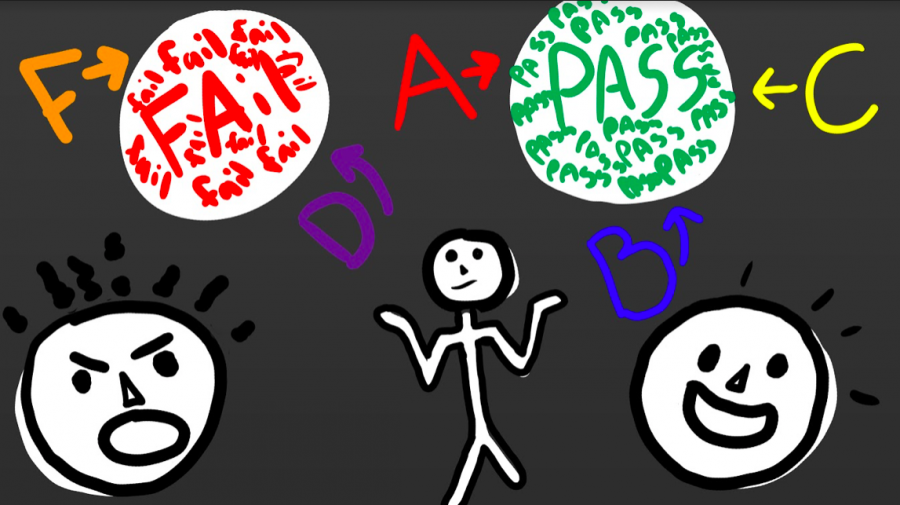Opinion: Pass/Fail: A Quip at Student Engagement
After moving to pass/fail, I’ve become a lot less interested in doing work for most of my classes. Of course, I still complete it, but not with the same vigor I had before the transition. All my work is, quite frankly, the bare minimum. I put in no extra effort to go ‘above and beyond,’ and I feel a little guilty about it. I constantly tell myself that it’s okay. It doesn’t matter–we’re pass/fail now.
I thought about this for a while–my lack of motivation that came with the move to pass/fail, and after reaching out to other students, I realized that it is not just me; every student that I have spoken to has seen themselves slack off ever since we moved to pass/fail.
“I really like the idea of pass/fail because it makes school a lot less stressful. But, I do feel like I’m not trying as hard since there aren’t any ‘real’ grades and school isn’t as serious,” Sofi M. ’23 explained.
Is this drop off in motivation the likely result of life in quarantine? Or is there something more about grades and the role they play in school? It’s most likely a mix of both. I asked multiple students if their drop in motivation was due to fear or anxiety over the Coronavirus pandemic but none felt fear as much as they admitted to boredom. To be clear, I’m by no means an expert in education, but I am an expert in my own experiences. And from my own experience, I can say that students should be feeling deeply engaged during class rather than bored. Some of the best students I know have felt this new sense of listlessness, which honestly doesn’t seem like learning to me.
Letter grading has been an issue for quite some time, as Alfie Kohn, educational author and lecturer, wrote in his article, “The Case Against Grades”: “Most of the criticisms of grading you’ll hear today were laid out forcefully and eloquently anywhere from four to eight decades ago… they remind us just how long it’s been clear there’s something wrong with what we’re doing as well as just how little progress we’ve made in acting on that realization.” Moving to pass/fail has brought to light a bigger issue that has yet to be addressed: the distinction between learning and compliance.
In Westridge’s formal letter addressing the move to pass/fail, the Upper and Lower School Directors as well as Head of School explain, “Our teachers believe [pass/fail] will provide students with an opportunity to experiment and take risks in new ways that will influence them as thinkers and learners while alleviating unnecessary pressure.”
“The opportunity to experiment and take risks” does sound appealing, but the truth is that for years, students, as well as their parents and teachers, have depended on letter grades as their motivation. To suddenly remove grades and expect students to “experiment and take risks” seems wildly optimistic. In this new pass/fail reality, what’s left is half-baked students who have been slacking in both effort and performance, unmotivated to learn and go the extra mile.
The way I see it, traditional grading fosters both competition and compliance instead of growth and critical thinking. Student achievement is ranked against each other on a scale between A-F, making school less about student growth and more about achievement. As Martin Maehr and Carol Midgley, two educational researchers explained in their book, Transforming School Cultures, “an overemphasis on assessment can actually undermine the pursuit of excellence.”
Dr. Diane Pintabone, Middle and Upper School Latin teacher explained, “Even under these circumstances, it is important for students to challenge themselves to do the work, to challenge themselves, to take an honest look at their own progress, and to keep trying despite difficult circumstances. The goal is to learn. Even when during remote learning we’ve had a test and the pressure of the precise grade is removed in a pass/fail system, students should still try their best since the goal is to master the material, not to get a particular grade.”
While Dr. Pintabone’s idealistic assertion is that students “should still try their best,” it seems that the entire responsibility for motivation rests on the students. What about a school’s responsibility to inspire and motivate learning? (As a disclaimer, I would like to say that in no way am I intending to criticize the intentions of teachers who genuinely want to educate and support students.) I’m not sure the lack of student motivation is any more teachers’ faults than it is students–it’s to the fault of the education system.
Most students have never experienced a school without grades. Grades are an obvious extrinsic motivator. If you’re a student, they’re a carrot to pursue. If you’re a teacher, they’re a weapon of fear, wielded intentionally or not. The threat of a low grade is enough to stir fear into many a high schooler’s heart. The relentless pursuit of grades and the fear of failure is responsible for all-nighters, plagiarism, and low self-esteem. It’s easy to see how grades can muddy the waters of education, whose real purpose should not be to rack up a trophy list of A’s. The purpose of education should be learning.
One aspect necessary to learning is risk taking. However, letter grades actually discourage students from taking risks. The moment a grade is introduced, it changes the nature of learning. Taking a risk jeopardizes a shiny A if all doesn’t go according to plan. Most students would rather game a system to work in their favor than end up a loser. Who could blame us?
I know from my own experience that I feel most motivated to learn when I have a choice to pursue an interest.
Last year, I participated in the annual Voices in Literature conference hosted by the Perspectives in Literature Class. Although it was completely optional and ungraded, I pushed myself through countless drafts of a slam poem that started out pretty poorly but honestly blossomed into something that I am proud of reciting even today. Through that process, I not only wrote a pretty nice poem, but I took great strides in finding my voice and improving my writing (similes, hello!). To me, this is what real learning looks and feels like.
I didn’t need a grade to confirm or measure or reward my learning. The learning was its own reward and worth more to me than some grades I’ve earned. But grades are often viewed as a transactional entitlement. “I don’t see grades as good or bad but as reflective of my effort, and so I always try to improve. Pass/fail diminishes that and also makes me feel my efforts are slightly wasted.” Audrey M. ’21 offered. Audrey has essentially equated grades to a reward for her efforts, yet the true reward should be learning, not the grade.
Olivia D. ’23 also admitted, “Although I find pass/fail a relieving system, I miss the satisfaction that grades brought to the table. It was just kind of nice to see an A for my efforts and having pass/fail takes away some of that satisfaction.”
It’s interesting to me that neither Audrey nor Olivia mentioned learning in their remark about grades. The sentiments of my peers are both disheartening and familiar. I recognize my own need or desire to have my efforts compensated or rewarded, but I’m also saddened by the way the pursuit of learning seems like a luxury or afterthought to the pursuit of grade.
To be clear, I do support the school’s decision to move to pass/fail. Given the circumstances, it seems like the most ethical and empathetic decision. However, I do think pass/fail, more than remote learning itself, has raised some important questions about learning. It’s forced me to rethink my own level of engagement and to appreciate and recognize those moments when I do feel deeply connected to and inspired by the material.
I started off remote learning with an indifferent approach to my work. But after realizing that my lack of motivation stemmed from a bigger educational issue, I’ve tried to reignite my desire to to learn and engage with the material, even if that means completing an optional worksheet for no extra credit. The discussion over student engagement in relation to letter grades has been a pressing topic in education for quite a while, but with the recent move to pass/fail, now is a good time as ever to talk about what going gradeless could mean.

Hailey is a senior and this is her fifth year on Spyglass as well as her second year doubling as the Website Manager and a writing editor. When not writing,...

















![Dr. Zanita Kelly, Director of Lower and Middle School, pictured above, and the rest of Westridge Administration were instrumental to providing Westridge faculty and staff the support they needed after the Eaton fire. "[Teachers] are part of the community," said Dr. Kelly. "Just like our families and students."](https://westridgespyglass.org/wp-content/uploads/2025/03/dr.-kellyyy-1-e1748143600809.png)














































